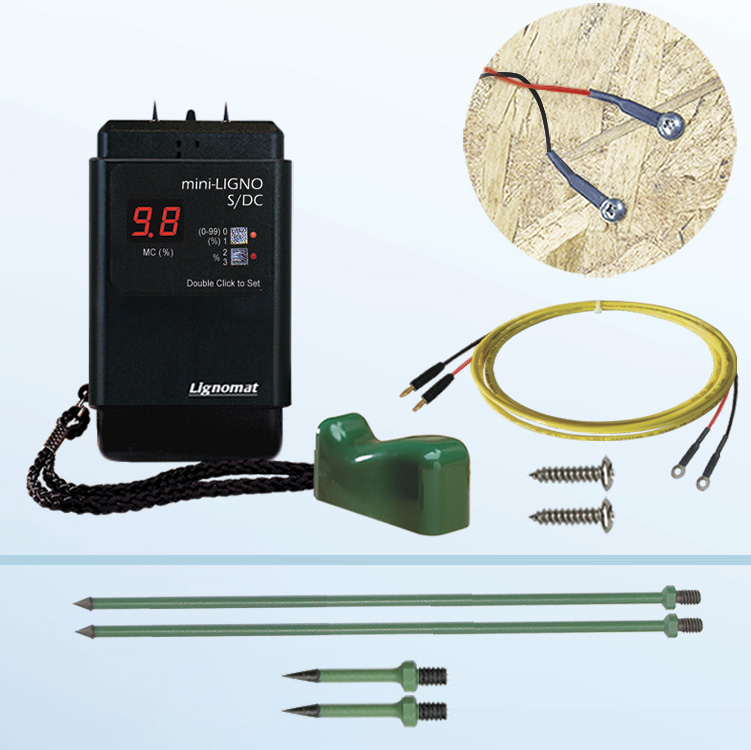Why Every Homeowner Needs a Moisture Meter: Trick Benefits and Functions
Why Every Homeowner Needs a Moisture Meter: Trick Benefits and Functions
Blog Article
The Ultimate Overview to Moisture Meters: A Comprehensive Overview and Exactly How They Can Save You Money
In the world of building maintenance, building and construction, and different industries, the relevance of precisely gauging moisture levels can not be overemphasized. Dampness meters work as crucial tools in identifying and keeping an eye on moisture material in products, aiding in preventing costly problems and making certain the quality of items. Recognizing the nuances of various sorts of dampness meters, their applications, and the potential cost-saving benefits they use can be a game-changer for professionals and businesses alike. Finding exactly how these devices can not only streamline processes but also contribute to financial cost savings is a journey worth starting.
Types of Moisture Meters
Various kinds of dampness meters are readily available for different applications in different industries. One typical type is the pin-type dampness meter, which measures the electric resistance in between two pins inserted into a material. This kind appropriates for timber, drywall, and various other building materials. Pinless moisture meters, on the various other hand, use electromagnetic sensor plates to scan a larger location without creating damages to the material's surface. These meters are optimal for swiftly examining wetness levels in big areas such as walls and floors.
Infrared dampness meters gauge the thermal properties of a product to establish its dampness material non-invasively, making them beneficial for applications where pin or pinless meters might not be suitable. Understanding the different kinds of dampness meters available can help sectors choose the most suitable tool for their details wetness measurement requirements.

Advantages of Using Moisture Meters

Moreover, using dampness meters can bring about increased energy effectiveness. By determining areas with high moisture levels, such as leakages or inadequate insulation, changes can be made to improve power conservation and decrease energy expenses. In farming settings, wetness meters play a vital function in maximizing plant returns by enabling farmers to monitor dirt dampness degrees and make notified watering choices. On the whole, the benefits of making use of wetness meters cover across various sectors, providing cost-effective services and advertising better high quality control practices.
Just How to Choose the Right Moisture Meter
Picking the suitable wetness meter involves taking into consideration vital elements such as product compatibility, dimension range, and calibration accuracy. When selecting a dampness meter, it's vital to make sure that the meter appropriates for the link details product you will certainly be testing. Different materials have differing electric residential or commercial properties that can impact dampness readings, so choosing a meter developed for your material is vital for exact results. Furthermore, consider the dimension range of the dampness meter. Guarantee that the meter can detect wetness degrees within the variety needed for your applications. Calibration accuracy is another important aspect to remember (Moisture Meter). Select a moisture meter with reliable calibration to make certain precise and consistent analyses. Some meters may need routine calibration adjustments, so comprehending the calibration process is essential. By thoroughly assessing these aspects, you can choose a dampness meter that fulfills your needs and supplies precise wetness measurements for your jobs.
Proper Techniques for Moisture Meter Usage
To make certain precise wetness analyses and take full advantage of the effectiveness of a moisture meter, utilizing correct techniques is essential. When using a pin-type wetness meter, insert the pins or probes into the product being checked up until they make complete contact. By complying with these appropriate techniques, individuals can rely on their moisture meter to offer reliable wetness levels, helping in stopping pricey damages or making certain quality in different applications.

Price Financial Savings Via Moisture Meter Applications
Just how can the critical utilization of moisture meters bring about substantial expense savings across various sectors? Moisture meters play a crucial duty in cost financial savings by protecting against prospective damages and ensuring quality assurance in various markets. In the agriculture market, dampness meters help in identifying the optimal time for harvesting plants, preventing excess or over-drying dampness that can influence the final product's quality. This specific tracking helps farmers stay clear of unneeded losses and optimize their return.

Furthermore, in the food handling industry, moisture meters are vital for monitoring item high quality and guaranteeing compliance with security laws. By properly measuring dampness content in food items, makers can stop wasting, keep quality, and minimize waste, leading to considerable expense financial savings. In general, the strategic application of moisture meters is recommended you read a beneficial financial this content investment that can result in significant cost decreases and improved effectiveness across numerous sectors.
Verdict
In verdict, dampness meters are important tools for finding and gauging moisture degrees in different products. By utilizing the best moisture meter and adhering to proper strategies, users can properly prevent costly problems triggered by excess wetness.
Dampness meters offer as crucial tools in detecting and keeping track of moisture web content in products, aiding in preventing costly problems and making sure the high quality of products. Infrared wetness meters determine the thermal residential properties of a material to identify its dampness content non-invasively, making them valuable for applications where pin or pinless meters might not be ideal.Moisture meters supply indispensable benefits in accurately assessing and checking wetness degrees in diverse products and environments. In farming settings, wetness meters play a vital duty in maximizing crop returns by enabling farmers to keep track of dirt dampness levels and make notified watering decisions.In final thought, wetness meters are beneficial devices for identifying and determining wetness degrees in numerous products.
Report this page